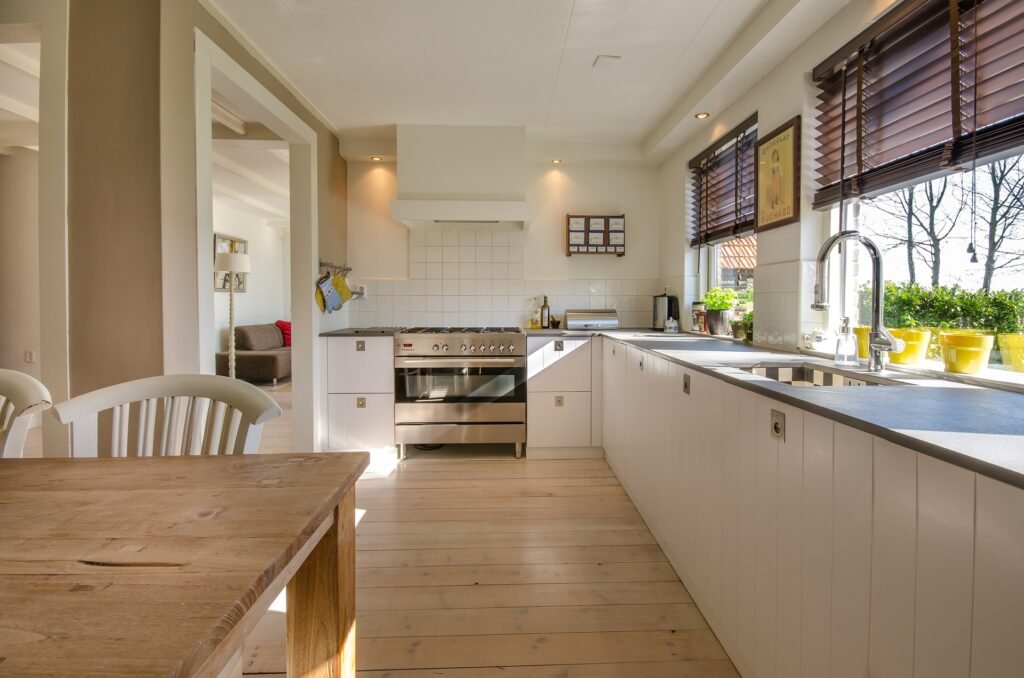In 2021, I embarked on an exciting journey to create what I envisioned as the ultimate smart kitchen. Fast forward three years, and I can say that my smart kitchen has transformed the way I cook, making the entire experience more enjoyable and creative.
The kitchen has always been a central space in every home, symbolizing warmth, family gatherings, and culinary creativity. But with the rapid evolution of technology, the kitchen is no longer just a place to cook; it’s becoming the nerve center of modern living. A smart kitchen, with innovative appliances and devices, can enhance your home’s functionality, efficiency, and sustainability. In this detailed guide, this post will delve into what a smart kitchen is and how it can improve your life, and provide practical insights based on personal experience in transforming an ordinary kitchen into a smart one.
What is a Smart Kitchen?
Before diving into the specifics of my kitchen, it’s essential to understand what a smart kitchen entails. A smart kitchen incorporates smart kitchen technology — devices connected via the Internet of Things (IoT), Bluetooth, or Wi-Fi. Users can control these devices through apps or voice assistants like Amazon Alexa or Google Assistant, offering a higher level of convenience, precision, and safety. The smart kitchen simplifies your life by offering devices like smart refrigerators that can track your groceries and voice-controlled ovens that ensure your meals are cooked to perfection.
But is that all there is to a smart home kitchen? I believe that while IoT connectivity is a significant aspect, smart kitchen innovations should also include gadgets that simplify cooking and cleaning, even if they don’t connect to the internet. The goal should be to enhance the kitchen experience, making it more efficient and enjoyable.
Key Components of a Smart Kitchen
1. Smart Appliances
The cornerstone of any smart kitchen is its appliances. Smart kitchen appliances, from voice-controlled ovens to refrigerators with built-in cameras, make your life easier. These appliances connect to your home network, allowing you to control and monitor them.
2. Automation Systems
A smart home automation system for kitchens can streamline daily tasks, such as turning on the coffeemaker as soon as you wake up or adjusting the lighting based on the time of day. These systems use sensors and algorithms to meet your needs and adjust.
3. Connectivity
Connectivity brings everything together in a smart kitchen. Connected kitchen devices communicate with each other and with your smartphone or voice assistant, providing a cohesive and integrated cooking experience. This connectivity allows for greater control and convenience, whether you’re at home or on the go.
4. Smart Sensors
Smart sensors for kitchen safety can detect smoke, gas leaks, or even water leaks, and send alerts to your smartphone. These sensors provide an additional layer of safety to your kitchen by promptly addressing any potential hazards.
Why Invest in a Smart Kitchen?
The decision to invest in a smart kitchen goes beyond the allure of modern technology. It’s about enhancing your quality of life, improving energy efficiency, and contributing to a more sustainable environment.
1. Enhanced Convenience
A smart kitchen offers unparalleled convenience in the kitchen. Whether it’s a smart refrigerator that suggests recipes based on the ingredients you have or an oven that cooks your meal to perfection without constant monitoring, the convenience factor is a major draw. These features are especially beneficial for busy families or individuals who want to simplify their cooking routines.
2. Energy Efficiency
Energy efficiency is a significant benefit of smart kitchens. Energy-efficient smart kitchen solutions, such as smart lighting that adjusts based on the time of day or energy-saving modes on appliances, can lead to substantial savings on your utility bills. Reducing energy consumption is a step toward a more sustainable lifestyle, which aligns with the growing global focus on environmental conservation.
3. Improved Cooking Experience
For those who love to cook, a smart kitchen offers a more enjoyable and efficient cooking experience. With precise temperature controls, cooking timers, and even virtual cooking assistants, you can experiment with new recipes and techniques with greater confidence. The smart cooking experience transforms the kitchen from a functional space into a creative environment.
4. Time Saving
Smart kitchen gadgets that save time are a significant change for busy families. Imagine a coffee maker that brews your favorite cup just as you wake up or a dishwasher that starts cleaning your dishes as soon as you finish dinner. These technologies not only save time but also ensure that your kitchen runs smoothly.
5. Cost Savings
While the initial investment in smart kitchen technology may seem high, the long-term savings are noteworthy. Cost-effective smart kitchen upgrades, such as energy-efficient appliances and smart inventory management, can reduce food waste and lower utility bills. Over time, these savings can offset the initial costs and provide a solid return on investment.
6. Health and Safety
Smart kitchens can contribute to a healthier lifestyle by helping you manage your diet and cooking habits. For instance, smart refrigerators can suggest recipes based on your dietary preferences, while smart ovens can cook food to the exact temperature, reducing the risk of overcooking or undercooking. Smart sensors add an extra layer of safety, protecting your home from potential hazards such as gas leaks or fires.
Top Smart Kitchen Gadgets to Transform Your Cooking Space
The right gadgets can take your kitchen from ordinary to extraordinary. Here are some must-have smart kitchen gadgets that combine functionality, efficiency, and style.
1. Smart Refrigerator
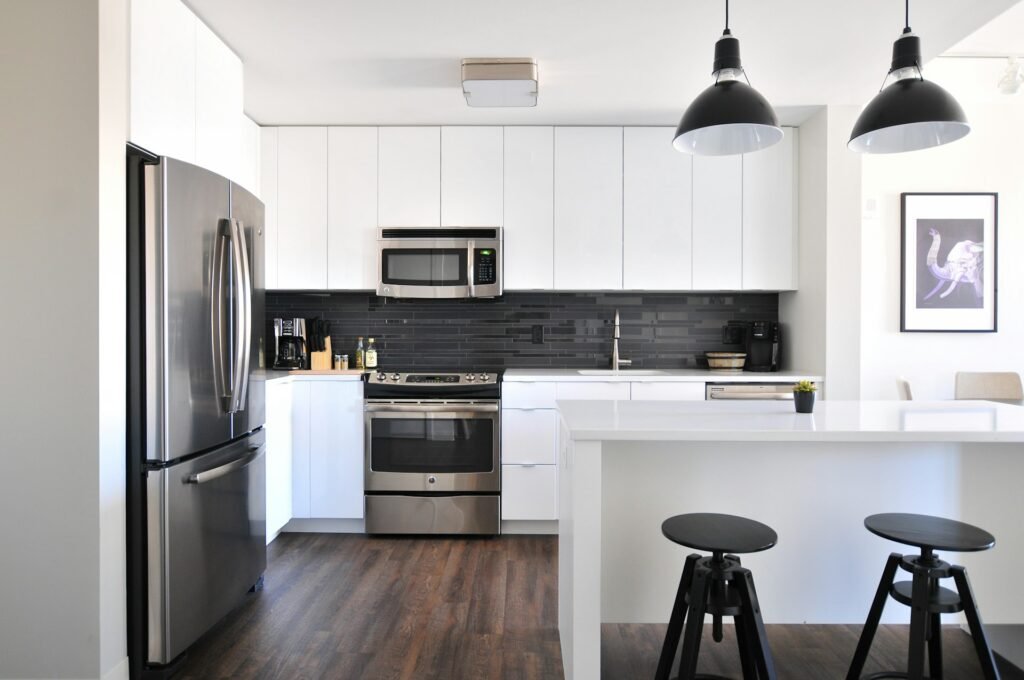
A smart refrigerator is the centerpiece of a smart kitchen. These refrigerators come with a range of features that make managing your kitchen easier. For instance, a smart refrigerator with a touch screen and inventory management can help you keep track of your groceries, suggest recipes based on what you have, and even allow you to order groceries online from the fridge. Some models also come with built-in cameras that let you check the contents of your fridge from your smartphone, ensuring you never forget an essential item.
2. Smart Oven
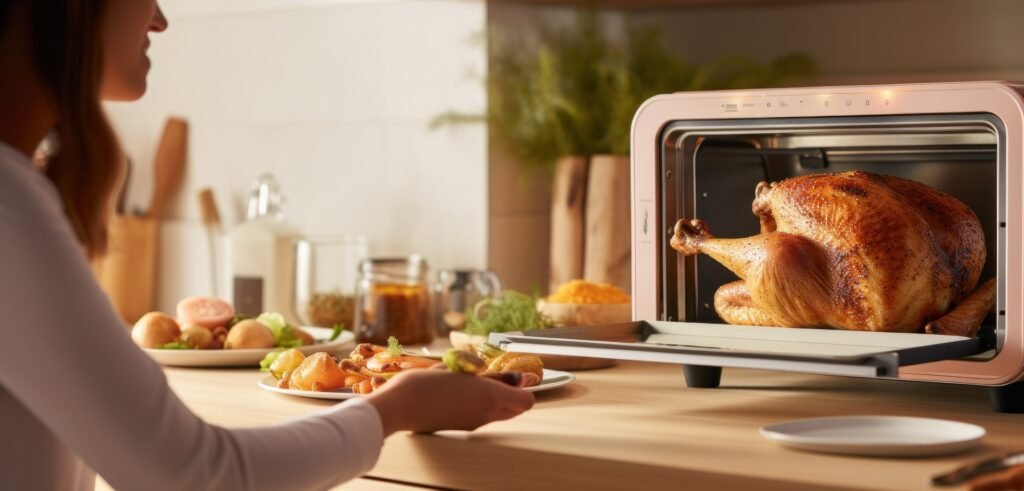
The smart oven is a game-changer for anyone who loves to cook. A smart oven with voice control and temperature sensors allows you to preheat, set timers, and adjust temperatures using just your voice. Some ovens also come with advanced features like air frying, dehydrating, and slow cooking, all controlled by your smartphone. With precise temperature controls and automatic cooking programs, a smart oven ensures that your meals are cooked perfectly every time.
3. Smart Dishwasher
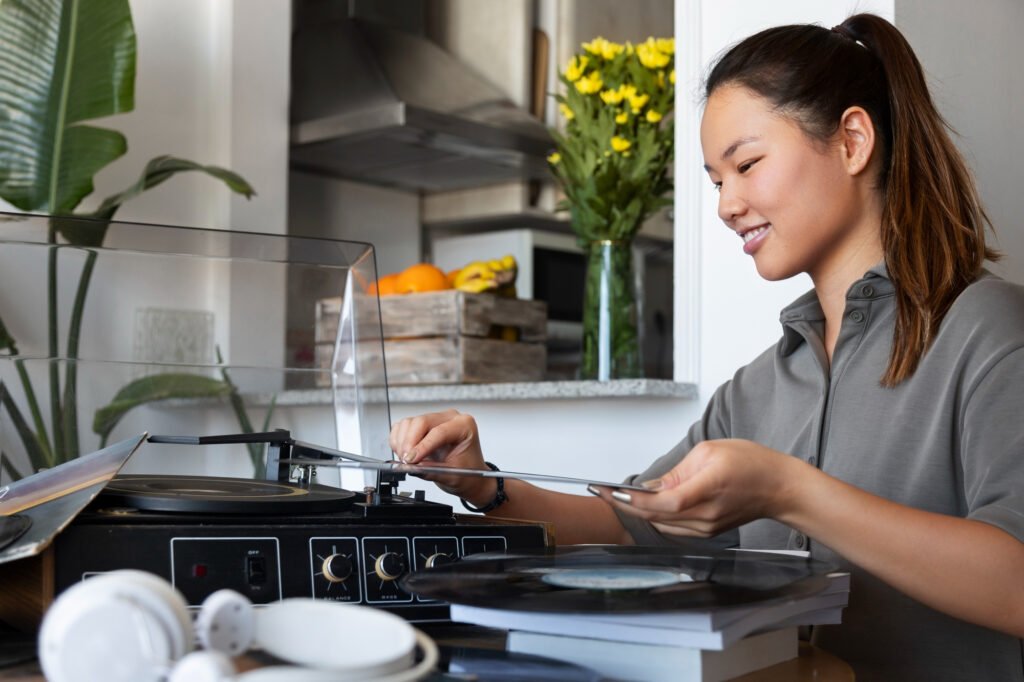
Washing dishes is a chore that no one enjoys, but a smart dishwasher can make it a lot easier. A smart dishwasher with remote monitoring and smart scheduling allows you to start, stop, or schedule a wash cycle from your smartphone. You can also receive notifications when the cycle is complete or if there’s a problem, such as a clogged filter. The smart dishwasher benefits extend beyond convenience; many models are also energy efficient, reducing both water and electricity consumption.
4. Smart Coffee Maker
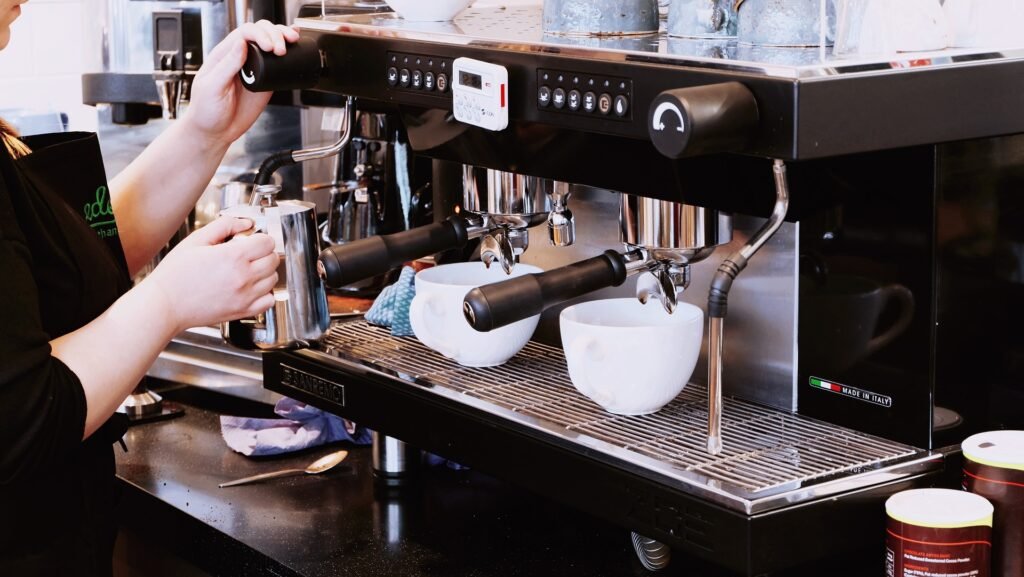
For coffee lovers, a smart coffee maker with programmable settings is a must-have. You can set it to brew your coffee just the way you like it and even schedule it to brew as soon as you wake up. Some smart coffee makers allow you to control them via smartphone apps, so you can adjust the brew’s strength, temperature, and more, ensuring a perfect cup every time.
5. Smart Kitchen Scale
Precision is key in cooking and baking, and a smart kitchen scale provides the accuracy you need. A smart kitchen scale can connect to your smartphone, allowing you to track nutritional information and portion sizes, and even find recipes based on the ingredients you have on hand. This gadget is perfect for anyone looking to improve their cooking skills or maintain a healthy diet.
6. Smart Thermometer
Cooking meat to the perfect temperature can be tricky, but a smart kitchen thermometer with app connectivity takes the guesswork out of it. You can place these thermometers in your food while it cooks, and they will send real-time temperature updates to your smartphone. Some models even include preset cooking temperatures for different meat, guaranteeing that your food is always cooked to perfection.
Eco-Friendly Smart Kitchen Solutions
One of the most appealing aspects of a smart kitchen is its potential to reduce environmental impact. By integrating eco-friendly, smart kitchen solutions, you can create a kitchen that is both high-tech and sustainable.
1. Smart Waste Management System
Waste management is a crucial aspect of any eco-friendly kitchen. A smart waste management system can help you manage waste more efficiently by sorting recyclables, compostable, and general waste. Some systems can even notify you when it’s time to take out the trash or when your compost bin is full. Sustainable kitchen waste management not only reduces your environmental footprint but also helps keep your kitchen clean and organized.
2. Water-Saving Faucets

Water conservation is another important consideration for a sustainable kitchen. A smart kitchen faucet with eco-friendly features, such as water-saving modes and touchless operation, can help reduce water usage. These faucets often come with sensors that monitor water flow and adjust it automatically, ensuring that you’re using only the amount of water you need.
3. Energy-Efficient Lighting
Lighting is an often-overlooked aspect of kitchen design, but it plays a significant role in both functionality and energy consumption. Energy-saving kitchen lighting solutions, such as smart LED bulbs, can be programmed to adjust their brightness based on the time of day or the amount of natural light in the room. Some systems can even be controlled remotely, allowing you to turn off lights when they’re not needed, further reducing your energy consumption.
4. Smart Cooking Appliances
Smart cooking appliances are designed to use energy more efficiently, which not only saves you money but also reduces your environmental impact. For example, induction cooktops use electromagnetic energy to heat pots and pans directly, reducing energy waste. Similarly, smart ovens often have multiple cooking modes that optimize energy use based on the type of food you’re preparing.
Challenges of Setting Up a Smart Kitchen
While the benefits of a smart kitchen are clear, it’s important to consider the challenges that come with setting one up. From the initial cost to the learning curve associated with new technology, these are factors that need careful consideration.
1. Initial Investment
The cost of smart kitchen technology can be a significant barrier for many homeowners. High-quality smart appliances and gadgets often come with a hefty price tag. However, it’s important to consider the long-term savings and benefits, such as reduced energy bills and improved convenience, which can offset the initial investment.
2. Compatibility Issues
One of the major challenges of setting up a smart kitchen is ensuring that all your devices are compatible with each other. Smart kitchen device compatibility challenges can arise if you purchase gadgets from different brands, as they may not integrate seamlessly. It’s crucial to do your research and choose devices that are compatible with your existing smart home system.
3. Learning Curve
Adapting to new technology can be daunting, especially if you’re not tech-savvy. The smart kitchen technology learning curve can vary depending on the complexity of the devices you choose. However, many smart kitchen gadgets are designed with user-friendly interfaces and provide tutorials to help you get started.
4. Security Concerns
With any connected device, there’s always the potential for security risks. Smart kitchen device security risks include the possibility of hacking, which could compromise your data or allow unauthorized access to your home network. To mitigate these risks, it’s important to choose devices from reputable brands, keep your software updated, and use strong passwords.
Practical Tips for Building a Smart Kitchen
Drawing from our own experience, here are some practical tips to help you build a smart kitchen that meets your needs and enhances your lifestyle.
1. Start Small and Scale Gradually
You don’t need to convert your entire kitchen to smart technology all at once. Start with a few key appliances, such as a smart oven or refrigerator, and gradually add more gadgets as you become comfortable with the technology. This approach allows you to spread out the costs and avoid feeling overwhelmed by too many new devices at once.
2. Prioritize Energy Efficiency
Focus on energy-efficient kitchen appliances to start. They provide the dual benefits of reducing your carbon footprint and lowering your energy bills, making them a smart investment.
3. Focus on High-Impact Upgrades
Prioritize smart kitchen upgrades that will have the most significant impact on your daily life. For example, if you forget to take out the trash, a smart waste management system could be a valuable addition. If you love cooking but struggle with timing, a smart oven with precise temperature controls might be your best investment.
4. Consider Your Cooking Habits
Your cooking habits should guide your smart kitchen choices. If you enjoy trying new recipes, a smart refrigerator with recipe suggestions and inventory management could be beneficial. If you prefer simple, quick meals, a smart coffee maker and toaster might be more up your alley.
5. Ensure Reliable Connectivity
A reliable home network is essential for a smart kitchen to function properly. Make sure your Wi-Fi signal is strong in the kitchen area and consider upgrading your router if necessary. If your kitchen is far from your router, a Wi-Fi extender can help improve the signal strength.
6. Plan for Future Expansion
As technology continues to develop, add new smart devices to your kitchen in the future. Plan for this by choosing appliances and gadgets that are compatible with a wide range of smart home systems. This way, you can expand your smart kitchen without having to replace existing devices.
The Future of Smart Kitchens
The smart kitchen of the future is likely to be even more advanced, with AI and IoT playing a central role in everyday kitchen tasks. Imagine a kitchen where your refrigerator orders groceries, your oven knows how you like your meals cooked, and your coffee maker adjusts the brew strength based on your morning routine.
1. AI Integration
AI-powered kitchen appliances are already making their way into the market, and this trend is expected to continue. These appliances can learn your preferences over time, making personalized suggestions and adjustments to improve your cooking experience. For example, an AI-powered oven might recommend cooking times and temperatures based on your past meals, ensuring consistent results every time.
2. Voice Assistants
Voice assistants like Amazon Alexa and Google Assistant are becoming integrated into smart kitchens. Smart kitchen voice assistant integration allows you to control your appliances, set timers, and even find recipes using just your voice. As voice recognition technology improves, these assistants will become even more intuitive and responsive.
3. Sustainability Focus
As environmental concerns continue to grow, the focus on sustainable smart kitchen technology is expected to increase. Future smart kitchens will feature even more energy-efficient appliances, water-saving devices, and waste management systems designed to minimize environmental impact.
4. Augmented Reality (AR)
Augmented reality is an exciting technology that could revolutionize the way we cook. Imagine seeing step-by-step cooking instructions overlaid onto your countertop, or using AR to visualize how new appliances or furniture would look in your kitchen. Augmented reality cooking instructions could make complex recipes easier to follow and enhance the overall cooking experience.
The smart kitchen is not just a luxury; it’s a practical, eco-friendly solution that can revolutionize how we live. You can enjoy a seamless, convenient, and sustainable cooking experience by handpicking smart appliances and integrating them into your kitchen. The smart kitchen represents the future of home cooking, offering a blend of convenience, efficiency, and sustainability that’s hard to ignore. Whether you’re looking to streamline your daily routine, reduce your environmental footprint, or enjoy a more enjoyable cooking experience, investing in smart kitchen technology is a step in the right direction.
By handpicking smart appliances and integrating them into your kitchen, you can create a space that’s not only functional but also innovative and personalized. The future of the kitchen is smart, and with the right approach, you can transform your kitchen into a high-tech hub that enhances your lifestyle and meets the demands of modern living. Start with a smart oven or go all-in with a complete smart kitchen setup, the benefits are clear. The smart kitchen is the future, and it’s time to embrace it.

